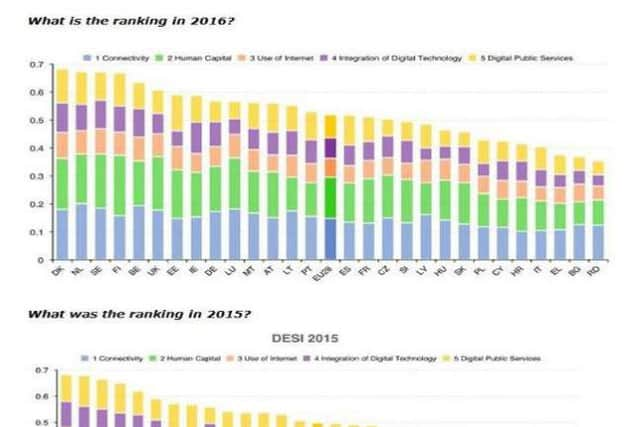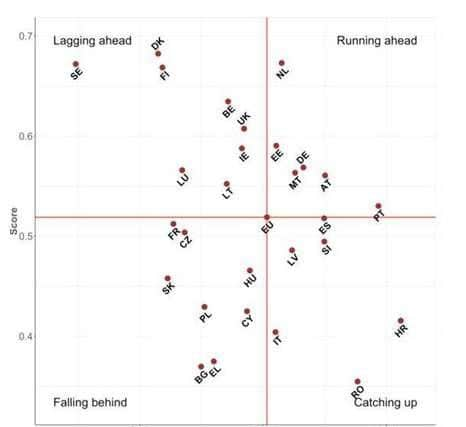UK at risk of falling behind Europe's digital performance


The 2016 Digital Economy and Society Index (DESI) measures European nations on their digital development, including the affordability of broadband services, the digital skills of the population and how nations use the internet.
While the UK’s digitisation is above-average, its pace of growth is slower than the average. The UK lands in the “lagging ahead” category alongside Lithuania, Ireland, Finland and Sweden, meaning that their development has slowed and is now lagging in comparison to the rest of the EU.
Advertisement
Hide AdAdvertisement
Hide AdAt the top of the table are Austria, Germany, Estonia, Malta and Portugal, whose score grew faster than the EU average in the last year.


Alex Smith-Bingham, head of digital at Capgemini, said: “Whilst it’s encouraging to see that the 2016 DESI shows some improvement in the digital transformation in Europe, it is worrying that progress is slowing.
“The UK has a high rate of internet use and digital skills have increased substantially. However, this is not translating into young people entering the ICT workforce with evidence that STEM graduate numbers are significantly below those of a decade ago.
“Our digital economy is growing rapidly and we simply do not have the supply of the right digital skills to meet demand, and this is impacting on Britain’s ability to compete on a global stage.”
With the exception of Sweden, all EU nations have improved their score by 0.5 in the last year. The region as a whole now scores 0.52 out of 1.


Northern Europe nations Denmark, Finland and Norway are top of the class when it comes to digital public services, and Europe leads in business adoption of digital technology.
Overall connectivity is where Europe stumbles, as both South Korea and Japan score highly. High-speed broadband is available in 71 per cent of European homes, but less than half (45 per cent) of Europeans do not have basic digital skills, showing a disconnect in the number of skilled Europeans able to use the digital connectivity on offer in this part of the world.
Only last year a survey from tech charity Go ON showed that 12 million UK adults need to improve their digital literacy, with regions such as Wales having as much as 38 per cent of its population without basic digital skills.
Advertisement
Hide AdAdvertisement
Hide Ad

Smith-Bingham added: “The DESI aims to show where countries should turn their focus in terms of digital investment and it’s clear that we need to prioritise digital skills.
“But it’s not just up to the government, businesses must also make investments in building a digital workforce for the future, whether that’s through graduate recruitment schemes, apprenticeship schemes or reaching young people throughout their early schooling.”
